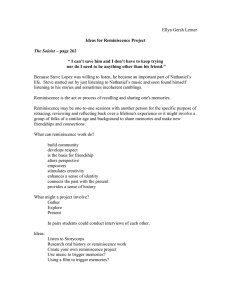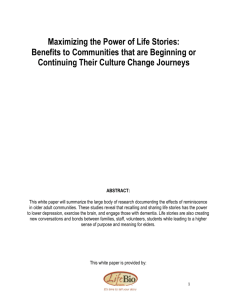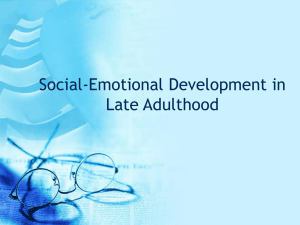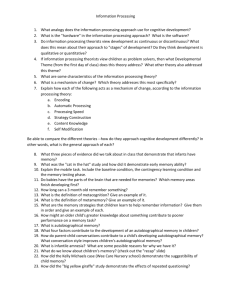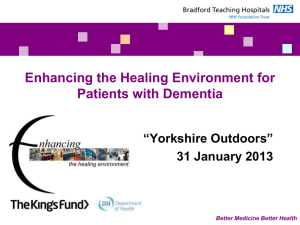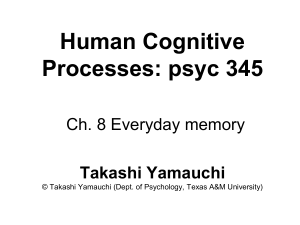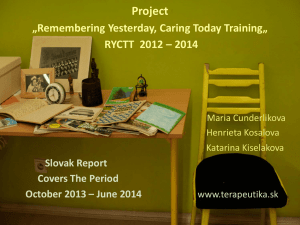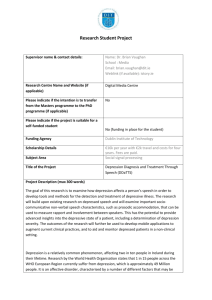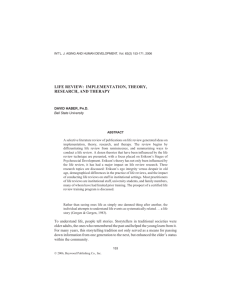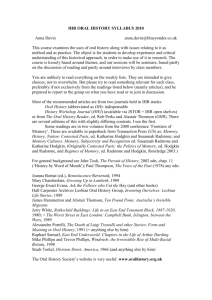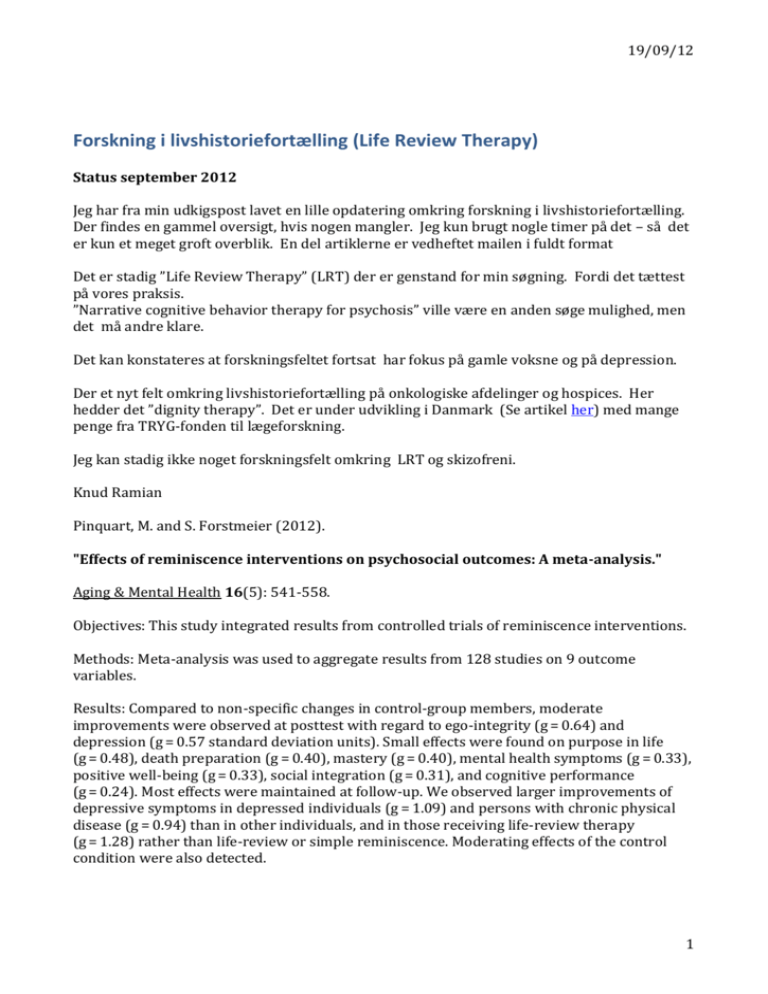
19/09/12
Forskning i livshistoriefortælling (Life Review Therapy)
Status september 2012
Jeg har fra min udkigspost lavet en lille opdatering omkring forskning i livshistoriefortælling.
Der findes en gammel oversigt, hvis nogen mangler. Jeg kun brugt nogle timer på det – så det
er kun et meget groft overblik. En del artiklerne er vedheftet mailen i fuldt format
Det er stadig ”Life Review Therapy” (LRT) der er genstand for min søgning. Fordi det tættest
på vores praksis.
”Narrative cognitive behavior therapy for psychosis” ville være en anden søge mulighed, men
det må andre klare.
Det kan konstateres at forskningsfeltet fortsat har fokus på gamle voksne og på depression.
Der et nyt felt omkring livshistoriefortælling på onkologiske afdelinger og hospices. Her
hedder det ”dignity therapy”. Det er under udvikling i Danmark (Se artikel her) med mange
penge fra TRYG-fonden til lægeforskning.
Jeg kan stadig ikke noget forskningsfelt omkring LRT og skizofreni.
Knud Ramian
Pinquart, M. and S. Forstmeier (2012).
"Effects of reminiscence interventions on psychosocial outcomes: A meta-analysis."
Aging & Mental Health 16(5): 541-558.
Objectives: This study integrated results from controlled trials of reminiscence interventions.
Methods: Meta-analysis was used to aggregate results from 128 studies on 9 outcome
variables.
Results: Compared to non-specific changes in control-group members, moderate
improvements were observed at posttest with regard to ego-integrity (g = 0.64) and
depression (g = 0.57 standard deviation units). Small effects were found on purpose in life
(g = 0.48), death preparation (g = 0.40), mastery (g = 0.40), mental health symptoms (g = 0.33),
positive well-being (g = 0.33), social integration (g = 0.31), and cognitive performance
(g = 0.24). Most effects were maintained at follow-up. We observed larger improvements of
depressive symptoms in depressed individuals (g = 1.09) and persons with chronic physical
disease (g = 0.94) than in other individuals, and in those receiving life-review therapy
(g = 1.28) rather than life-review or simple reminiscence. Moderating effects of the control
condition were also detected.
1
19/09/12
Conclusions: Reminiscence interventions affect a broad range of outcomes, and therapeutic as
well as preventive effects are similar to those observed in other frequently used interventions.
-.WESTERHOF, G. J., E. BOHLMEIJER, et al. (2010).
"Reminiscence and mental health: a review of recent progress in theory, research and
interventions. ."
Ageing and Society, 30 , 30: 697-721.
This article explores recent progress in theory, research and practical
applications of reminiscence. It first describes the evidence for reminiscence as a naturally
occurring process, and discusses the different functions of reminiscence and their
relationships with mental health and lifespan processes. Three basic types of reminiscence
that relate to mental health are specified: conversations about autobiographical memories
and the use of personal recollections to teach and inform others have social functions; positive
functions for the self include the integration of memories into identity, recollections of past
problem-solving behaviours, and the use of memories to prepare for one's own death;
negative functions for the self are the use of past memories to reduce boredom, to revive
bitterness, or to maintain intimacy with deceased persons. It is proposed that in interventions
the three types are addressed differently: simple reminiscence stimulates social reminiscence
and bonding and promotes positive feelings; life review uses the positive functions to enhance
personal wellbeing; and life-review therapy seeks to reduce the negative uses and thereby
alleviate symptoms of mental illness. Studies of the effectiveness of interventions have
provided some evidence that interventions are effective in relation to their goals. The review
closes with recommended directions for future reminiscence research.
Davis, M., W. Guyker, et al. (2012).
"Uniting veterans across distance through a telephone-based reminiscence group
therapy intervention."
Psychological Services, 9(2): 206-208.
This report describes the implementation of a six-session telephone-based
Reminiscence Group Therapy (RGT) intervention for veterans enrolled in a Home Based
Primary Care Program (HBPC). HBPC psychologists face challenges not routinely encountered
in the traditional office setting, and the intervention demonstrated the feasibility of
conducting semistructured group treatment by telephone. Postgroup feedback indicated that
the veterans found meaning in shared experiences and connection with themselves and
others. The RGT intervention allowed for efficiency in service delivery while also providing an
opportunity for veterans to socialize and gain a sense of meaningfulness and identity through
facilitated recall of past experiences. (PsycINFO Database Record (c) 2012 APA, all rights
reserved)
*****
2
19/09/12
Korte, J., E. T. Bohlmeijer, et al. (2012).
"Life review therapy for older adults with moderate depressive symptomatology: a
pragmatic randomized controlled trial."
Psychological Medicine 42(6).
Background Although there is substantial evidence for the efficacy of life review
therapy as an early treatment of depression in later life, its effectiveness in natural settings
has not been studied. The present study evaluates an intervention based on life review and
narrative therapy in a large multi-site, pragmatic randomized controlled trial (RCT). Method
Life review therapy was compared with care as usual. The primary outcome was depressive
symptoms; secondary outcomes were anxiety symptoms, positive mental health, quality of
life, and current major depressive episode (MDE). To identify groups for whom the
intervention was particularly effective, moderator analyses were carried out (on
sociodemographic variables, personality traits, reminiscence functions, clinically relevant
depressive and anxiety symptoms, and past MDEs). Results Compared with care as usual
(n=102), life review therapy (n=100) was effective in reducing depressive symptoms, at posttreatment (d=0.60, B=-5.3, p<0.001), at 3-month follow-up (d=0.50, B=-5.0, p<0.001) and for
the intervention also at 9-month follow-up (t=5.7, p<0.001). The likelihood of a clinically
significant change in depressive symptoms was significantly higher [odds ratio (OR) 3.77,
p<0.001 at post-treatment; OR 3.76, p<0.001 at the 3-month follow-up]. Small significant
effects were found for symptoms of anxiety and positive mental health. Moderator analyses
showed only two significant moderators, the personality trait of extraversion and the
reminiscence function of boredom reduction. Conclusions This study shows the effectiveness
of life review therapy as an early intervention for depression in an ecologically valid context,
supporting its applicability to a broad target group. The intervention is also effective in
reducing anxiety symptoms and strengthening positive mental health. [PUBLICATION
ABSTRACT] %Z Background Although there is substantial evidence for the efficacy of life
review therapy as an early treatment of depression in later life, its effectiveness...
Serrano Selva, J. P., J. M. Latorre Postigo, et al. (2012).
"Life review therapy using autobiographical retrieval practice for older adults with
clinical depression."
Psicothema 24(2).
The aim of this experiment was to examine the efficacy of life review based on
autobiographical retrieval practice for treating depression in older adults. Thirty-seven
clinically depressed older adults aged 64-83, who were also receiving pharmacological
treatment, were randomly assigned to life review therapy or to a placebo condition with
supportive therapy. Results indicated decreased depression for both conditions, with no
significant differences between the two therapies. There was some indication of greater gain
in production of specific memories among those in life review therapy. Patients who produced
higher numbers of specific memories decreased their depression scores at a faster rate. %Z
The aim of this experiment was to examine the efficacy of life review based on
autobiographical retrieval practice for treating depression in older adults....
3
19/09/12
*****
Ando, M., T. Morita, et al. (2010).
"Factors that influence the efficacy of bereavement life review therapy for spiritual
well-being: a qualitative analysis."
Supportive care in cancer : official journal of the Multinational Association of Supportive Care
in Cancer 19(2).
We have previously shown that bereavement life review therapy improves the
spiritual well-being of a bereaved family, but the factors that influence the efficacy of this
therapy have not been determined. Therefore, this study was performed to identify factors
associated with improvement of spiritual well-being of bereaved families. The participants
were 21 bereaved family members who lost a relative who had been treated in a palliative
care unit in Japan. The family members received the Bereavement Life Review over two
sessions of about 60 min each. In the first session, the bereaved family member reviewed
their memories of the deceased relative with a clinical psychologist and answered several
questions. After the first session, the psychologist made an album. In the second session, the
family member and the psychologist confirmed the accuracy of the contents of the album.
Assessment was performed using the Functional Assessment Chronic Illness TherapySpiritual score, based on which the participants were separated into effective and noneffective groups. Factors were extracted from the narrative of the therapy using a text-mining
software. Factors such as "good memories of family," "loss and reconstruction," and "pleasant
memories of last days" were commonly found in the effective group, whereas factors such as
"suffering with memories," "regret and sense of guilt," and "disagreement on funeral
arrangements" were more common in the non-effective group. Factors like "good memories of
families," "loss and reconstruction," and "pleasant memories of last days" were associated
with the improvement of spiritual well-being of bereaved families. %Z We have previously
shown that bereavement life review therapy improves the spiritual well-being of a bereaved
family, but the factors that influence the...
4

